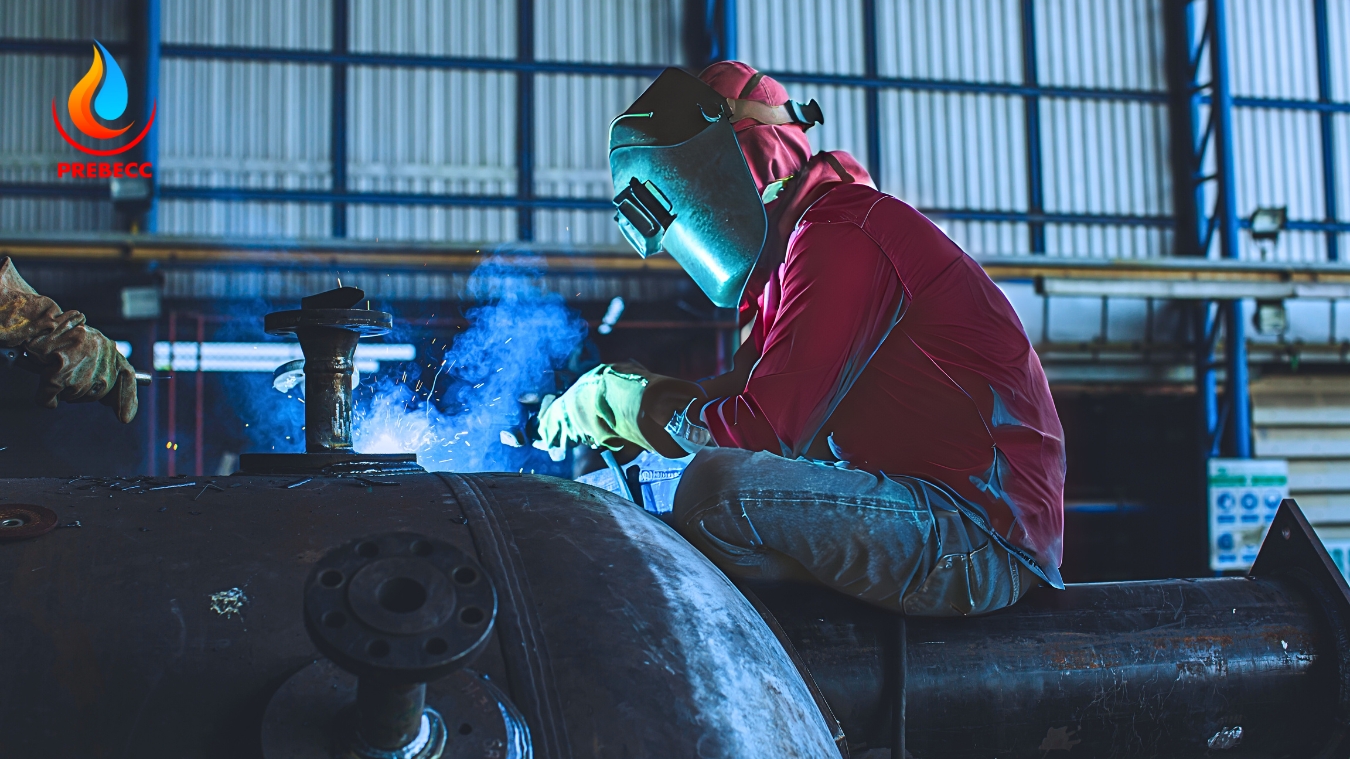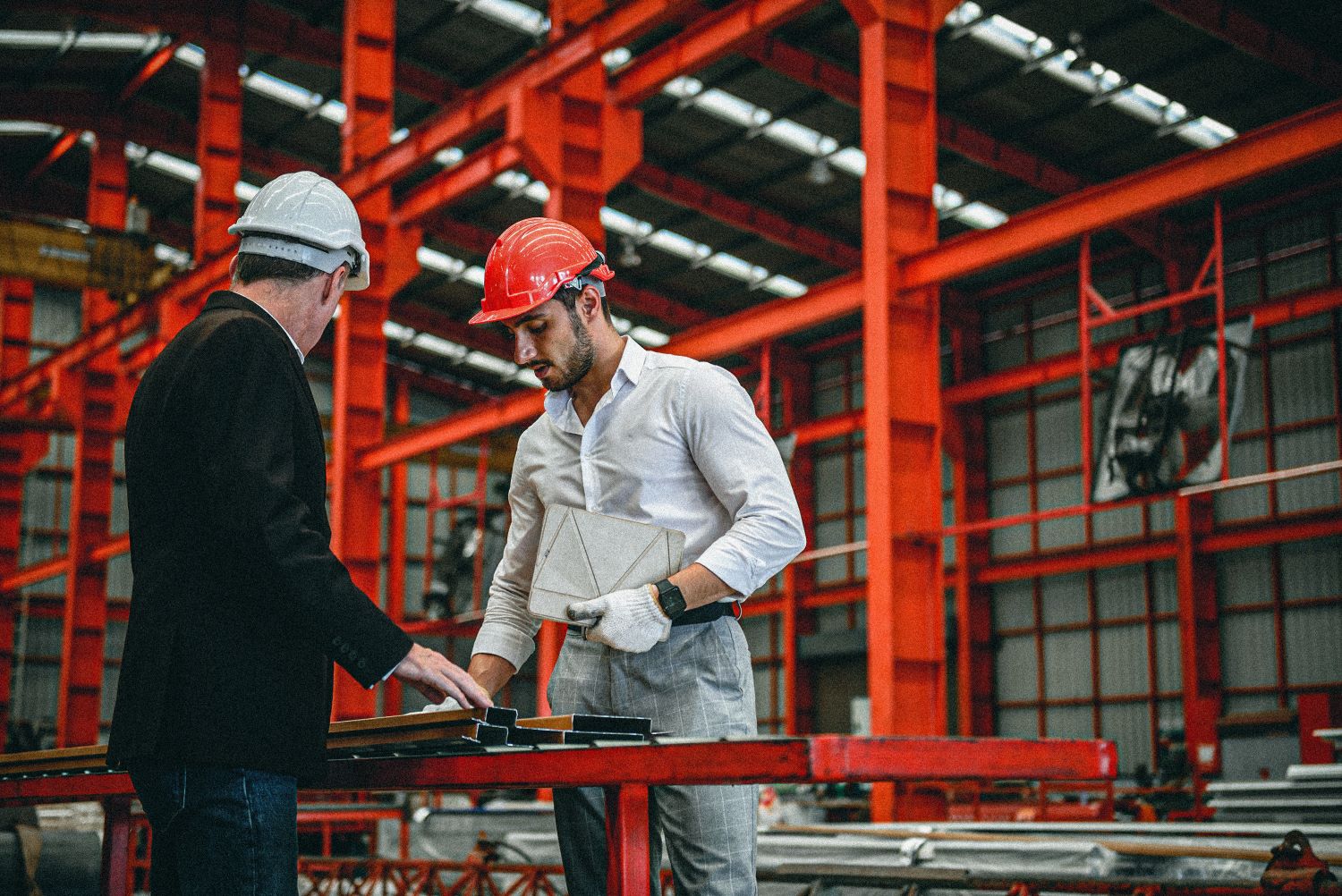Boilers and pressure equipment play a crucial role in various industries, from power generation and food processing to chemicals and oil & gas. However, if not designed and manufactured according to proper standards, these devices can pose serious risks to human life, property, and the environment.
The EN-3834 standard was introduced to ensure strict requirements in welding processes, helping businesses enhance product quality, ensure operational safety, and extend equipment lifespan. But what makes this standard special, and why should companies adopt EN-3834 standard boilers? Let’s explore in detail with Prebecc.
1. EN-3834 Standard
EN-3834 is an international standard developed by the European Committee for Standardization (CEN), setting forth quality requirements for the welding of metallic materials. This standard is fundamental in heavy industries, especially for products like boilers and pressure equipment—systems that operate under high pressure and temperature, where safety risks are significant if not strictly controlled.
Widely recognized across Europe and many other countries, EN-3834 is particularly critical for boilers and pressure vessels, where welds must withstand extreme conditions.
Vietnam has also adopted this standard through TCVN 7506-2:2011 (ISO 3834-2:2005), allowing local businesses to meet international requirements.
EN-3834 is classified into three levels, depending on the required quality criteria:
- EN-3834-2: The most stringent level, applicable to high-risk equipment such as industrial boilers.
- EN-3834-3: Intermediate requirements, suitable for lower-risk structures and equipment.
- EN-3834-4: Basic requirements, typically used for simple welded products.
Learn more about EN ISO 3834 standard
2. Why apply EN-3834 for Boilers and Pressure Equipment?
Applying the EN-3834 standard in boiler design and manufacturing is not just a technical regulation but a decisive factor for safety, operational efficiency, and business competitiveness. To fully understand its benefits, we must examine them from multiple perspectives, including technical safety, product quality, economic value, and market positioning.
2.1. Ensuring Safe Operation
Safety is the top priority when it comes to boilers and pressure equipment. These systems operate under high pressure and temperature, frequently subjected to intense mechanical and chemical stresses. Even minor welding defects can lead to leaks, cracks, or, in severe cases, boiler explosions—resulting in catastrophic human and financial losses.
EN-3834 imposes strict requirements on welding processes, from material selection and welding procedure control to weld quality inspection and assessment. Specifically, EN-3834-2, the highest level of this standard, applies to high-pressure equipment like industrial boilers, ensuring that weld joints achieve maximum integrity and can withstand extreme pressure without cracking or deformation.
Additionally, the standard mandates non-destructive testing (NDT) methods such as X-ray, ultrasonic, and magnetic particle inspection to detect internal weld defects. This early detection of technical flaws helps minimize potential failures.
Compliance with EN-3834 not only protects operators but also ensures the safety of entire industrial plants and their surrounding environment. This is particularly crucial for high-risk industries such as oil & gas, chemicals, and energy.

2.2. Enhancing Equipment Quality and Longevity
Weld quality is a crucial factor directly influencing the durability and lifespan of boilers. Substandard welds can lead to cracks, porosity, or accelerated corrosion when exposed to harsh operating conditions. The EN-3834 standard ensures that every step, from design and material selection to welding execution, is strictly controlled.
One of the key requirements of EN-3834 is temperature control during welding. Maintaining appropriate temperatures during boiler welding prevents material deformation and residual stress buildup. Additionally, the standard mandates the use of highly qualified welders, particularly those with 6G welding certification — the highest level of certification in pipe and pressure welding.
By manufacturing boilers according to EN-3834, businesses can rely on long-term stable operation, minimize breakdowns, and extend maintenance cycles. This is especially beneficial for industries requiring continuous operation, such as power generation and food processing.
2.3. Reducing Operating and Maintenance Costs
Boiler maintenance and repair expenses can account for a significant portion of a company’s operating costs. Subpar equipment is prone to frequent failures, leading to unplanned downtime and lost productivity.
Applying the EN-3834 standard minimizes technical defects and extends the service life of equipment, resulting in considerable savings on maintenance costs. Certified boilers also reduce expenses related to inspections and monitoring, as they have already undergone rigorous quality assessments.
Furthermore, EN-3834-compliant boilers deliver higher operational efficiency. Their robust and airtight welds minimize energy loss, optimize heat exchange, and reduce fuel consumption. For large-scale facilities, even a slight increase in energy efficiency can generate substantial economic value.
2.4. Boosting Competitiveness and Global Collaboration
In today’s globalized economy, manufacturers of boilers and pressure equipment must meet not only domestic standards but also international ones to enter global markets. EN-3834 is widely recognized across Europe and many other regions, providing a significant advantage for companies seeking to expand their market presence.
Possessing EN-3834 certification also enhances a company’s reputation and competitiveness. International clients and investors often prefer suppliers with certified products to ensure safety and quality in critical projects.
For companies participating in large-scale industrial ventures such as power plants, refineries, or renewable energy projects, EN-3834 certification is often a prerequisite for bidding. Meeting this standard opens the door to greater opportunities, solidifying the company’s position as a reliable partner in the global market.

3. Choosing a reliable EN-3834 Certified Boiler Supplier
Selecting a trustworthy supplier is a critical step to ensure your equipment meets the highest quality standards. Here are key factors to consider:
- Experience and Certification: Ensure the supplier has a team of certified engineers and welders with extensive experience in manufacturing EN-3834-compliant boilers.
- Quality Management System: The supplier should follow ISO and EN-3834 standards throughout the production process, ensuring strict quality control.
- Advanced Technology: Look for companies utilizing modern welding technologies and Non-Destructive Testing (NDT) methods to guarantee weld integrity.
- After-Sales Service: A reliable supplier provides comprehensive maintenance, repair, and technical support services to ensure smooth operation.
At Prebecc, we are proud to be a leading provider of EN-3834-certified boiler design and manufacturing solutions. With a team of skilled technicians and a robust quality management system, we are committed to delivering the most efficient and reliable solutions for your business.
Applying EN-3834 standards in boiler design and manufacturing offers comprehensive benefits — from ensuring operational safety and enhancing product quality to reducing operating costs and expanding business opportunities. For enterprises, investing in EN-3834-compliant boilers is not just a smart choice; it is a commitment to sustainable growth and workplace safety.
When customers choose Prebecc’s EN-3834-certified boilers, they can be confident in the exceptional performance and extended service life of their equipment. This is the core value we deliver — not only a premium product but also the assurance of safety and success for your business.
Contact
